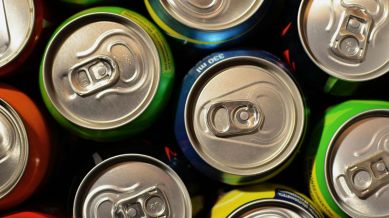Why that soda with your meal can trigger heart disease: Here’s what a latest study found
Consistent use of sugary soda drinks was linked to a higher risk of stroke, heart failure, irregular heartbeats and even aneurysms.

If you thought that a soda drink is better than having a mithai, you would be surprised to know that the former raises your risk of heart disease higher than the latter. A recent study involving 70,000 adults in Sweden has found that consistent drinking of sugary soda drinks was linked to a higher risk of stroke, heart failure, irregular heartbeats and even aneurysms (bulging blood vessels). Indulging in an occasional sweet had a lower risk in comparison.
Why is the study significant? That’s because there is indiscriminate use of soda drinks by the younger generation, particularly children. Not only does regular consumption from childhood build an addictive behaviour and suppress your sense of hunger and satiety, it pushes you towards chronic conditions like diabetes, obesity and cardiovascular diseases.
monthly limit of free stories.
with an Express account.
WHAT’S THE STUDY ABOUT?
Altogether 70,000 adults in Sweden answered dietary questionnaires in 1997 and 2009 indicating how many calories they got from three sources of added sugars: sodas and sugary drinks, toppings like honey or jam, and sweet treats like pastries, candy, or ice cream. After more than two decades of follow-up, nearly 26,000 people were diagnosed with cardiovascular diseases, according to findings published in Frontiers in Public Health. Soda users had the highest risk.
WHY SODA-BASED DRINKS ARE A RISK?
That’s because sweetened and flavoured soda has concentrated sugar. “A sweet or dessert would comprise other food groups like carbohydrate, fats and some protein through dairy. So its calories are more buffered than say a soda which has empty calories. Now a piece of sweet also has a higher satiety value. Usually people have soda with food which leads to a calorie overload,” says Dr Balbir Singh, Chairman, Cardiac Sciences, Cardiology, Max Hospital, Saket.
This kind of sugar overload results in sudden sugar spikes which in turn need higher levels of the hormone insulin to stabilise them. “The body processes added sugar differently so the pancreas has to overwork itself to produce more insulin. Higher insulin levels in the blood result in inflammation in the arterial walls of the cardiovascular system, which can trigger heart attacks and strokes. Empty calories also result in excess weight gain, leading to obesity which increases the risk of conditions like high blood pressure and high cholesterol,” adds Dr Singh.
If you consume high-sugar drinks regularly, then the calorie rush can overwhelm your body’s ability to handle it. “This leads to insulin resistance, when your body stops responding to this sugar-regulating hormone. The excess blood sugar leads to increased fat storage, inflammation and damage to blood vessels,” says Dr Singh. Occasional sweet treats do not build an addictive behaviour or create consistent calorie consumption. “If you are not already diabetic and can have a discipline about an occasional sweet treat, then your sugar would not spiral the way it does with soda,” he adds.
TIME FOR HEALTHY SWAPS
Dr Singh is all for a national health advisory on soda sales, considering young people’s dependence on it. Have fruit-infused water or home-made smoothies. Note that no more than 10% of your daily calories should be in the form of added sugar. This equates to about 12 teaspoons of sugar with a 2,000-calorie diet. A can of soda already has that much.